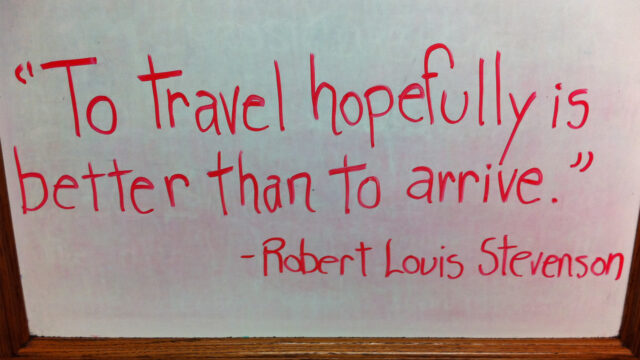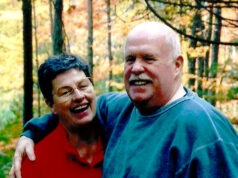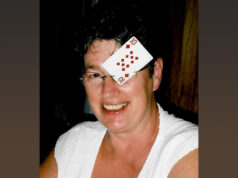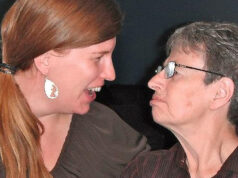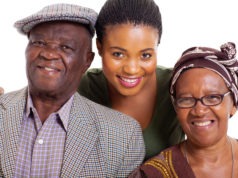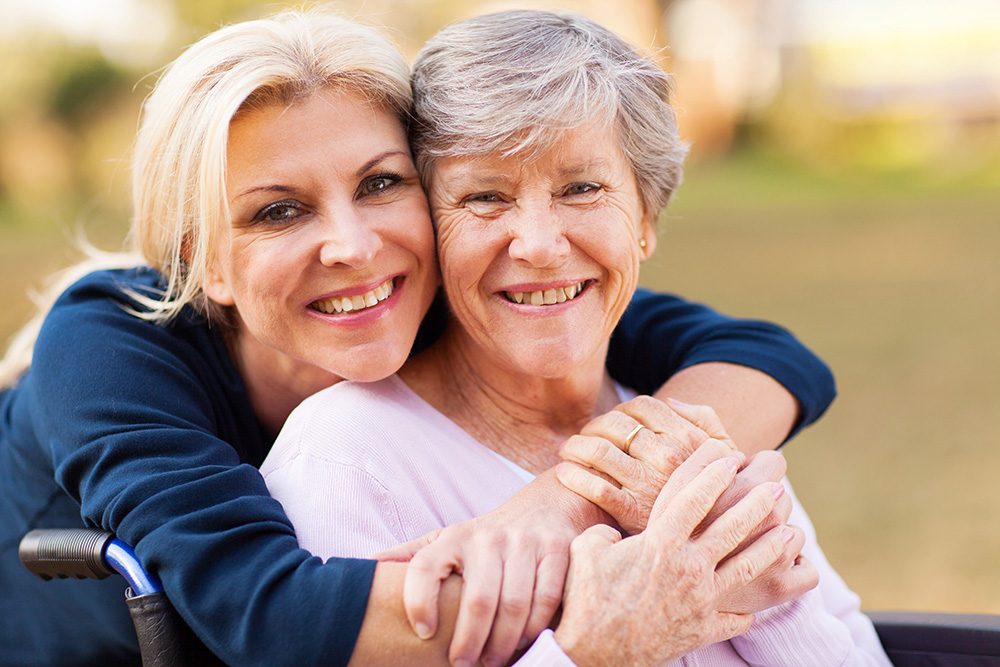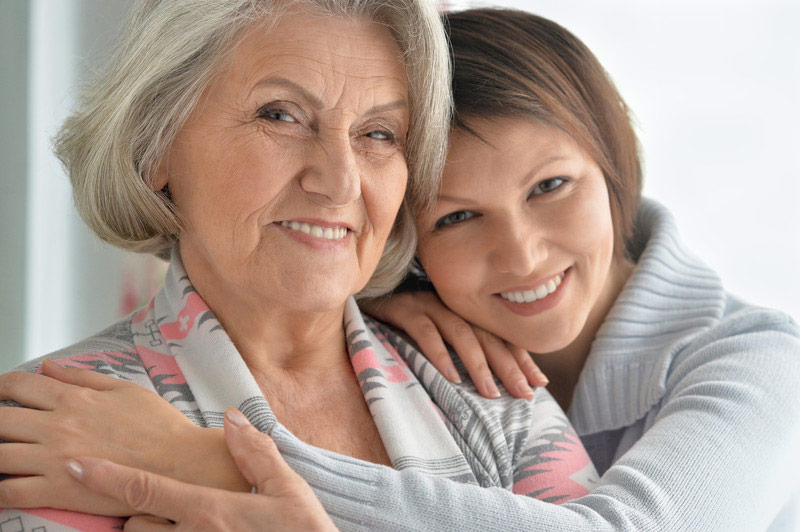Suzanne: And welcome everyone to Answers for Elders Radio Network, heard across the USA on your favorite podcast platform. And we are here with Parkinson’s expert Lianna Marie, who is the author of “The Parkinson’s Path” and many books on Parkinson’s disease. And you can also find her at AllAboutParkinsons.com. And Lianna, we are so excited to talk to you today about a topic that is kind of a hot button for me. And that is a sense of purpose. And I love that you wanted to talk about this today. So you took care of your mom who had Parkinson’s disease. And a lot of times, I would say if somebody has a terminal illness or they might have a bucket list they might think about, but they don’t think about every day that there’s a reason to get up in the morning, there’s a reason to flourish. What did you find in your experience with that?
Lianna Marie: Well, first of all, thank you. I appreciate talking about this, and I don’t think you could talk about this enough in life.
Suzanne: I agree.
Lianna Marie: I think that we don’t think about this enough, and then when we do it’s often very, very late in our lives. So the sooner we can start talking about, why am I here? It doesn’t have to be so nebulous. It can be like, what are we doing today? And in Parkinson’s, there’s this thing that happens, that life slows down and — good or bad, it slows down physically, everything slows down. So over time things will take longer to do. But in the same boat, many people who I’ve talked to that have been diagnosed with Parkinson’s early on, they say it was a gift in the sense that it actually did make them slow down. And they may have had a busy life in their professional life and they were just busy, busy, busy, busy, busy. And this time — during their diagnosis and adjusting to their diagnosis, accepting their diagnosis — was a time for them to start thinking about: what is it that I want to get done in my life? Or why am I doing that particular occupation even? I mean, a lot of people thought about that during the pandemic. So that was something that came up, because it does give you a chance to reflect. And having something that drives you every day to get up, and get going, is absolutely paramount. And especially for someone who has any kind of illness, terminal or chronic, because that purpose, and there’s science.
Science will tell you that that is what’s keeping you alive. And I do want to stress that. In fact, I can even cite an example. Many people already may know this, but Japan as an example — I often reference Japan. I love their culture. But one thing that’s very fascinating about them is they happen to have a very large percentage of people living over 100, centenarians they call them. And there’s been a lot, not just in Japan but all other parts of the world, but they call them blue zones, but for Japan, in particular, Okinawa, they did this study 43,000, I believe it was, what was the paramount reason why they were living past 100. Yes, health. And what they eat is very important and the exercise. But they pinpointed one area that I found particularly enlightening, and this I learned several years ago, but it’s a concept you probably already heard, ikigai. You’ve heard that word?
Suzanne: I have.
Lianna Marie: And the word means, basically: that which makes life worth living. And having that ikigai, whatever you want to call it — your purpose, that one thing can lead to you living longer. Absolutely. Without a doubt. I mean, just think about the reverse when we don’t have a reason to live, what happens? We give up. So we want to think about the importance: “I need to find that, I need to know, I need to have that purpose.” Even if it’s just one day. We just don’t necessarily have to go, “My purpose in life is to be — for me, author.” Well, that’s one of the things that drives me is being an author, but that’s not every day, right?
So as a person with Parkinson’s, for my mom, having something every day that gave her purpose was really paramount, especially on those tough days when life is really challenging. And for her, I’ll give some examples. Things we discovered, that for her to be part of a group where she was needed. So every time that that group met, they’re like, “Oh Val, you’re here, your job is such and such.” And so she had a purpose right away. So the group, it was a singing group. Her gaither girls, they called it. She loved to sing, and she could still sing. So her job was to put the music together for each week. Even just that, “oh, I have a job. I gotta get the sheet music ready for the group.” And so I put that together and then when we meet, they look to me and they say Val, where is she? And she has that. Something, as simple as that. That’s just one very small example, but it really made a difference. And she told me, “I have to get that done, the group is counting on me,” and that really helped her. And I would say around year 15 of 30. So right in the smack dab in the middle. This is a time that I interviewed her. I have a recording where she’s reflecting upon all the things that have made a difference. And that was one of the things, where she said having a reason to be productive. She kept using that word, productive, and this is after she’s retired. We’re going to talk about this. You’ve talked to me before about this, Suzanne, is this idea that just because you’re not “working,” you no longer have an occupation, perhaps, that productivity is still important in terms of what you’re doing with your life.
Suzanne: It’s a reason to get up every morning. If you don’t use that brain, if you don’t use that area of yourself, if you have the amyloids in your brain, it can certainly escalate symptoms of Alzheimer’s and dementia, that is scientifically proven. And so to have something that you gotta get up, and you gotta be busy, and you’ve got to move forward with, that’s important, and it might be something joyful, it might be something that you’re giving out. But I really think the main thing is, is that you can look yourself in the mirror at night and you say, you know what, I made a difference today, I did something power positive, that my life counted today. I know for me, it’s that sense of contribution. It’s that sense of, “I am going to do something positive to the world and I’m leaving my mark on the world. And even though I may have some difficulties, maybe I might have some challenges, maybe I might be caring for one that has difficulties and challenges, that doesn’t mean that you can’t have your own sense of purpose.” And those are some things I think that we really can think about in how we conduct our lives every day. I know for me, I have so many irons in the fire, but I can’t imagine living life without purpose. That is not something that I’ve ever thought about not doing. I’m always doing something, but I know other people that don’t see the need for it, and I see that, and I’m being a little judgmental here, and I don’t mean to be, but there’s this sense of sadness in their life. They don’t look like they’re fulfilled or happy individuals.
Lianna Marie: And to those people, I agree, especially those who are perhaps a care partner or a spouse, someone who’s really enduring the real hardships of the end stages of Parkinson’s, for example. Their main purpose, that person is just every day caring for their spouse. That is their purpose, that’s what’s getting them up, because they know this job has to be done, and it’s a tough slog, and outside of that, they’re not really thinking like I got nothing else. It’s very hard to think about your life separate from that, and just saying, well — and it’s not wrong that that’s your purpose in life now.
Suzanne: It’s not. But I also believe, Lianna, that it doesn’t have to just be that. While you’re taking care of a spouse, you’re writing a book, maybe you’re doing something that is important with charity, maybe you’re on a phone tree helping something in the community. There’s things you can do as a care partner, whether you’re a a spouse or a son or a daughter. If you have a job that you love, a career, don’t give it up. And I always tell people that are caring for loved ones, don’t give up yourself, don’t slide down the rabbit hole.
Lianna Marie: Yeah. And I can already hear the practicality of that for many people. Like, it takes so much time, and again, it’s the amount of desire, I suppose, for many people, they see the value in it, or not. But I would say to everyone that the pros outweigh the cons significantly. And for you as a care partner, if you are a care partner, that your life will be shortened if you’re not focusing on what it is that’s giving you life — and again, it’s just to be honest and practical, that we know that care partnering, caregiving hands on later-on can really — I hate to say it — suck the life out of you.
Suzanne: And it will, if you let it. And the thing is, you cannot give to someone else from an empty vessel. You have to take care of you first. And that means having your own sense of purpose, as a care partner. And if it’s your spouse, if it’s your parent, if you live with them, I strongly advise that home care should come in and relieve you a couple days a week. There’s different resources: there’s adult day services, there’s different types of things that you can find to fulfill yourself. And I think that’s one of the things that I would encourage for sure.
Lianna Marie: Absolutely.
Suzanne: Yeah. Lianna, it’s been so great at talking about this, as you can tell, one of my, one of my hot buttons. And I want to talk about this topic again.
Lianna Marie: We are totally gonna talk about this again because there’s way more to talk about. We just got the tiny little top inch of the inch surface here.
Suzanne: And to each and every one of you, remember that Lianna Marie has many other podcasts on our network. So please just Google her, you’ll find her, you’ll also find her on Answers for Elders or your favorite podcast platform. And thank you again, Lianna for being on the show.
Lianna Marie: Thanks, Suzanne.






